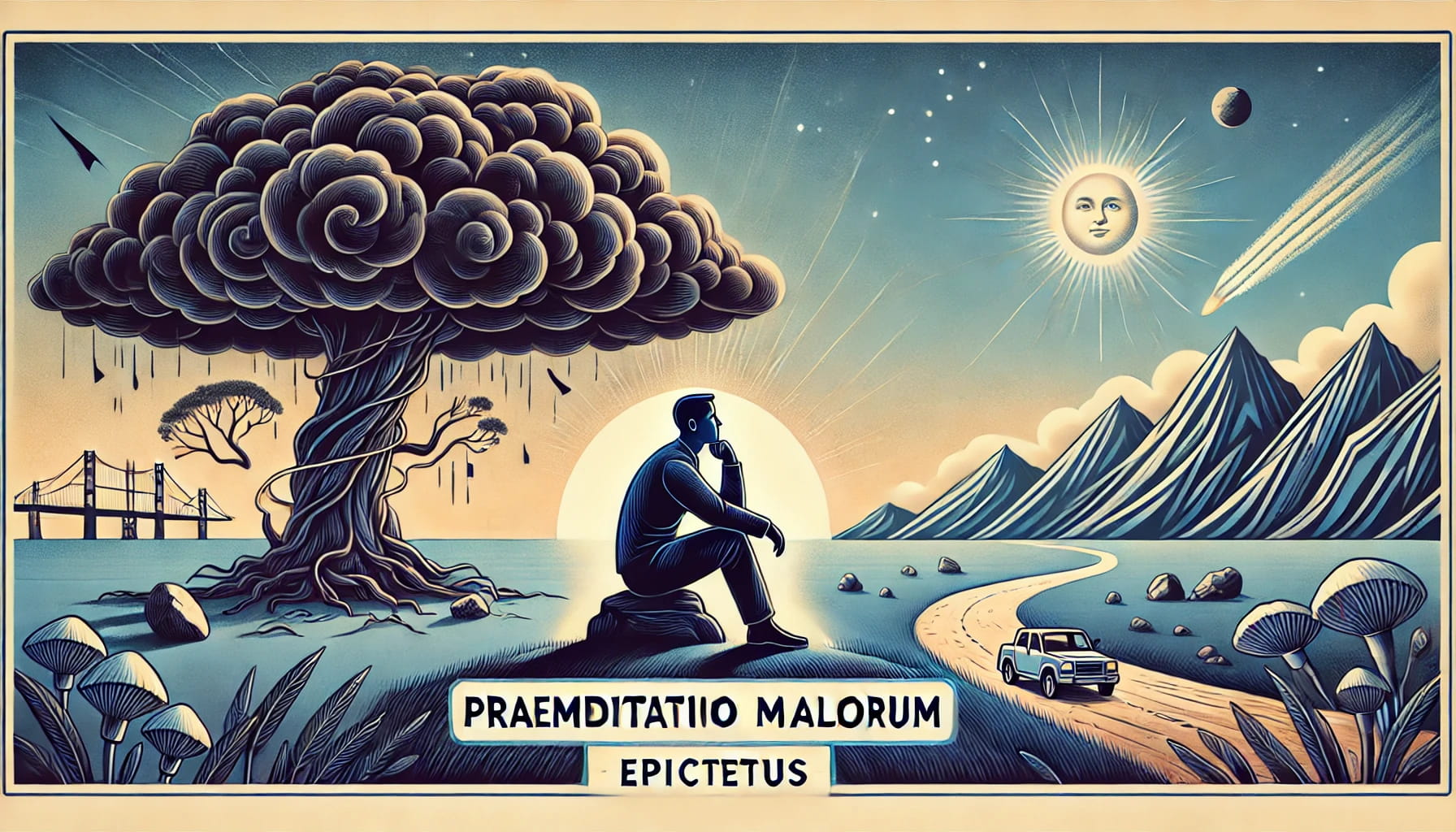One of the most valuable aspects of Epictetus’ philosophy is his focus on praemeditatio malorum, or the practice of mental preparation for the challenges and difficulties that may arise in the future. Epictetus and mental preparation for challenges offer an essential tool to face life’s uncertainty with serenity, helping us anticipate the unexpected without falling into anxiety or fear.
What is Praemeditatio Malorum?
Praemeditatio malorum, or “premeditation of evils,” is a Stoic technique that involves imagining, in a controlled way, the potential difficulties we might face. The goal of this practice is not to generate worry but to mentally and emotionally prepare ourselves so that when these events happen, we are better equipped to handle them.
For Epictetus, the key to tranquility is not avoiding problems—since many of them are beyond our control—but rather training our minds to receive any situation with equanimity. By anticipating challenges, we practice a kind of “emotional immunization.” Thus, when we face real difficulties, like illness, loss, or professional failure, our minds will have already reflected on them, allowing us to respond more calmly and thoughtfully.
The Value of Mental Preparation
Epictetus and mental preparation for challenges remind us that, although we cannot control what will happen, we can control how we prepare for what may come. In everyday life, many people feel overwhelmed by unexpected events because they haven’t taken the time to reflect on the difficulties they might face. This type of “just react” mentality generates more stress and distress, as emotions overwhelm us when problems arise.
In contrast, praemeditatio malorum gives us an advantage: it allows us to train our responses before events occur. For example, if we anticipate that we might lose our job at some point, we are not wishing for it to happen, but we will be better prepared to handle it if it does. Instead of feeling devastated, we will have already reflected on how we might act, adapt, and find new opportunities.
Modern Applications of Praemeditatio Malorum
The practice of Epictetus and mental preparation for challenges remains deeply relevant in today’s world. In a society that values security and stability, uncertainty can cause significant discomfort. However, by practicing praemeditatio malorum, we don’t cling to the idea that everything must go as planned. Instead, we become flexible and resilient.
A practical application of this teaching is risk management in professional or financial settings. Rather than assuming that everything will always go well, people who mentally prepare for possible failures or recessions tend to be more resilient. Anticipating a bad outcome not only prepares us emotionally but also motivates us to create contingency plans. If the worst-case scenario happens, we will have already devised strategies to mitigate the damage.
Another area where praemeditatio malorum is useful is in personal relationships. Anticipating that people may disappoint us or that conflicts may arise helps us handle them with more patience and empathy. Epictetus invites us to reflect on human nature and accept that we cannot control others, only our responses to their actions.
How to Practice Praemeditatio Malorum
Praemeditatio malorum can be practiced easily. Each day, take a few minutes to reflect on potential difficulties you might face: What would happen if tomorrow you had to deal with a difficult situation at work? How would you react if a friend let you down? What would you do if you faced a financial loss? Imagine these scenarios without becoming emotionally attached to them and visualize how you could handle them with serenity.
By doing this exercise regularly, you strengthen your mind to face life more balanced. It’s not about being pessimistic but about being realistic and proactive.
Conclusion
Epictetus and mental preparation for challenges teach us to be ready for whatever may come, without fear or anxiety. Praemeditatio malorum allows us to face the unexpected with greater tranquility, helping us develop resilience and mental clarity. In a world where change and uncertainty are inevitable, this Stoic approach is a powerful tool for living with serenity and control over our reactions, no matter what life throws at us.

